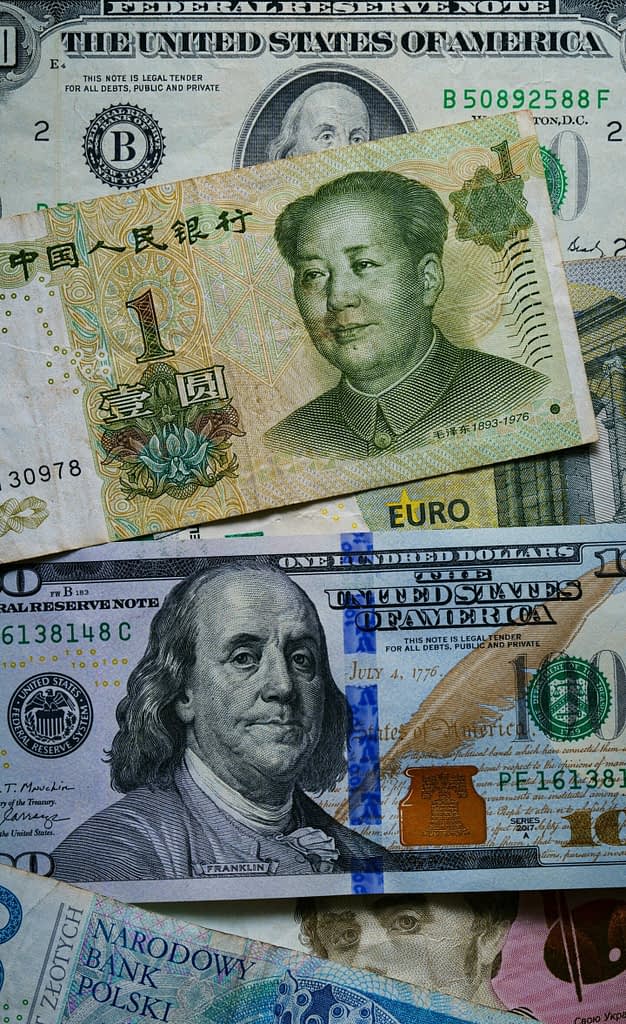The global trade landscape is reeling as the US-China tariff war deepens, shifting from a broad global standoff to a direct economic showdown between the world’s two largest economies. President Donald Trump’s dramatic tariff strategy, including a steep 125% duty on Chinese imports, has triggered a full-spectrum response from Beijing. In retaliation, China has levied 125% tariffs on US goods and has sharply condemned Washington’s moves as unilateralism and economic coercion.
China Seeks Allies Against the US
China’s counterstrategy extends beyond economic retaliation. It is aggressively seeking global allies to counterbalance US influence. Premier Li Qiang’s outreach to European Commission President Ursula von der Leyen and Chinese Commerce Minister Wang Wentao’s call with EU Commissioner Šefčović underscore Beijing’s effort to forge a united front. China is also engaging ASEAN nations and business leaders, warning that US tariffs harm not only China but the global economy and multilateral trading systems.
Chinese President Xi Jinping said on Friday that a tariff war benefits no one and that opposing the global community leads to isolation. “There are no winners in the tariff war and standing against the world ultimately results in self-isolation,” Xi told visiting Spanish Prime Minister Pedro Sanchez, according to state news agency Xinhua. He emphasized that China’s progress over the past 70 years has relied on self-reliance and hard work, not on external aid.
Trump Sets Sights on Other Countries Too
Trump’s partial tariff pause for most countries, announced with fanfare on social media, sent markets soaring. Wall Street had one of its best days in decades: the S&P 500 leapt 9.5%, the Nasdaq surged over 12%, and Japan’s Nikkei jumped 9.1%. Analysts described the shift as a swing from “fear to euphoria,” although Chinese markets lagged behind, wary of continued targeting.
However, the American president is threatening tariffs against other countries besides China. On Thursday, he warned Mexico of increasing trade-related consequences if it fails to deliver more water to Texas, as required under a longstanding treaty. “Mexico has been stealing the water from Texas Farmers,” Trump posted on Truth Social. He accused Mexico of not complying with a 1944 agreement that allows the US access to water from the Colorado River in return for water from the Rio Grande. “We will keep escalating consequences, including TARIFFS and, maybe even SANCTIONS, until Mexico honors the Treaty,” he threatened.
China’s Diplomatic Efforts Show Mixed Results
However, Beijing’s diplomacy has seen mixed results. Australia and India have rebuffed its overtures, emphasising independent national interests over alignment with Beijing. Even Russia, typically a staunch ally, finds itself outside the scope of Trump’s latest tariff manoeuvres. Southeast Asian economies, while affected by new duties, remain reluctant to align fully with China, given their reliance on US markets.
India Defends Its Interests
Commerce and industry minister Piyush Goyal on Friday said that India is in ongoing talks with the United States over a proposed bilateral trade agreement (BTA), but any decision will be taken with caution to safeguard national and public interests. He emphasized that all trade discussions are guided by the principle of ‘India First’ and are aligned with the country’s goal of achieving Viksit Bharat by 2047. “I have said it many times before that we do not negotiate at the gunpoint. Timely restrictions are good as they encourage us to talk swiftly, but until we are able to protect the interests of the country and people, it is never good to be hasty,” Goyal said.
China Responds Forcefully
China’s official stance remains uncompromising. It refuses talks with the US, accusing Washington of insincerity and pledging to “fight to the end.” Officials say contingency measures are ready, and incremental policy adjustments are on the table. On Friday, China announced that it would “ignore” any additional US tariff hikes, stating that American goods would no longer be economically viable for importers. Additionally, Chinese state media reported that China plans to file a lawsuit against the United States at the World Trade Organization in response to the latest round of tariffs.




